20+ Signs Your Elderly Is Ready for Assisted Living [2024]
People with certain illnesses or diseases, or just those going through the aging process may find it challenging to complete their everyday tasks. Families and caregivers can pay attention to the visible signs of difficulty in carrying out everyday tasks and consider care options.
While care and support are necessary to improve the quality of life of individuals, another important aspect to consider is maintaining independence. For families looking for a balance between care services and independence, assisted living may be the best option for their loved ones.
Signs One Needs Assisted Living Care
It is essential to look out for signs that may suggest that an individual requires professional help. Recognizing these vital signs can help families and caregivers provide individuals with the care services they need and offer a supportive environment.
1. Physical Limitations
Individuals struggling with daily life activities can require assisted living. Difficulty in bathing, eating, grooming, or toileting due to physical limitations can be distressing. Individuals with physical limitations may also be at more risk of falls or accidents, making assisted living a need.


2. Cognitive Impairments
For individuals with cognitive impairment and memory decline, performing daily life tasks becomes tough. They may experience memory loss or confusion while carrying out activities making it hard for them to complete it effectively. Families and caregivers can pay attention to visible signs of cognitive impairment in their loved ones and address them timely.
3. Difficulty doing Household Tasks
If someone is unable to maintain their living space and complete their chores, it may suggest that they require care and support. Difficulty in meal preparation or laundry may also suggest one’s inability to carry out key tasks.
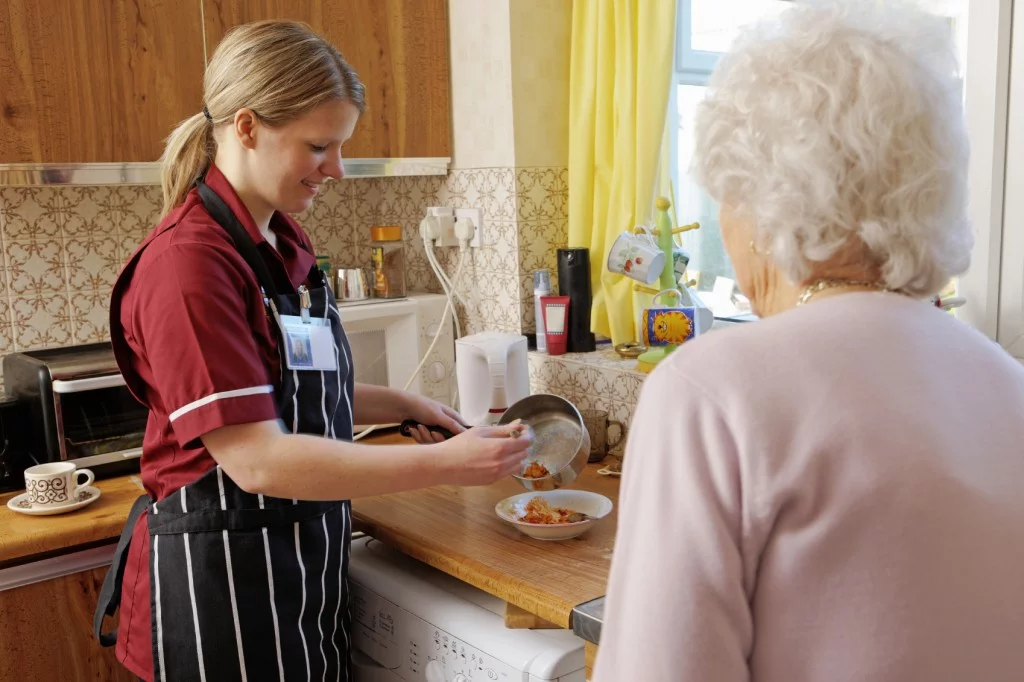

The compassionate care team in assisted living helps the residents with these household tasks to promote the overall health of individuals.
4. Decline in Personal Care
A noticeable decline in one’s ability to maintain their health or hygiene suggests a need for personal care services as well. Individuals may feel unable to manage self-care routines and require external assistance.
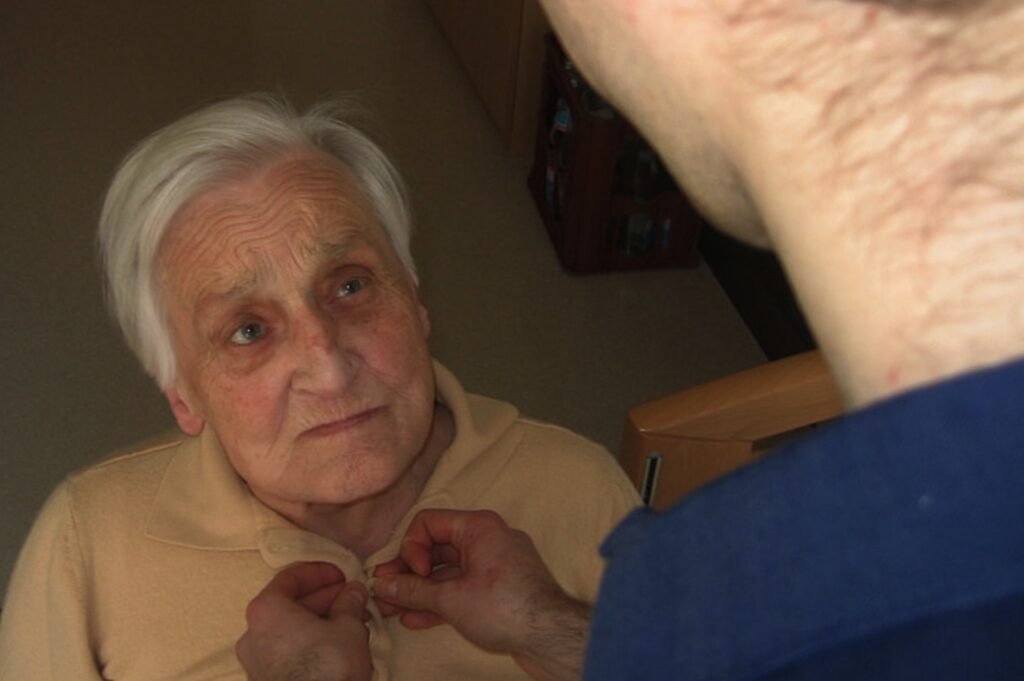

Assisted living provides personal care as well to enhance the quality of life of their residents by maintaining their hygiene and addressing other needs.
5. Medication Mismanagement
Forgetting to take medicines, taking the wrong medicines, or not being able to take them in the prescribed dosage can suggest one’s need for assistance. Medication management is a significant part of one’s overall health and any mismanagement can have serious consequences.


It is crucial to consider the critical nature of this aspect and provide your loved one with professional assistance to avoid any negative circumstances.
6. Increased Dependence
If your loved one has begun to rely on others for the fulfillment of their tasks, this may suggest their inability to carry out certain activities and they may require help. Dependence on families, neighbors, or caregivers for basic needs can indicate the need for support.
7. Health Concerns
Individuals with certain chronic conditions or those going through the process of post-surgery recovery may need the support of care centers. They may require medical attention or assistance with everyday activities, which are readily available in case of assisted living.
8. Isolation
Social withdrawal or isolation can suggest the need for a companion. It is essential to look out for emotional signs your loved one may be exhibiting. For individuals with an inactive social life, assisted living provides them with opportunities to interact with other residents and caring staff, fostering a sense of belonging and security.
9. Frequent Hospitalizations
If an individual experiences frequent visits to the hospital and needs medical care more often, this can suggest that they need professional assistance. Assisted living can provide immediate access to care and support for such individuals, attending to their unique needs and intervening timely.
10. Wandering or Getting Lost
In certain health conditions, such as dementia or Alzheimer’s, patients may experience confusion regarding their surroundings and wander or get lost even in familiar places. This inability to remember different settings can indicate the need for assisted living.
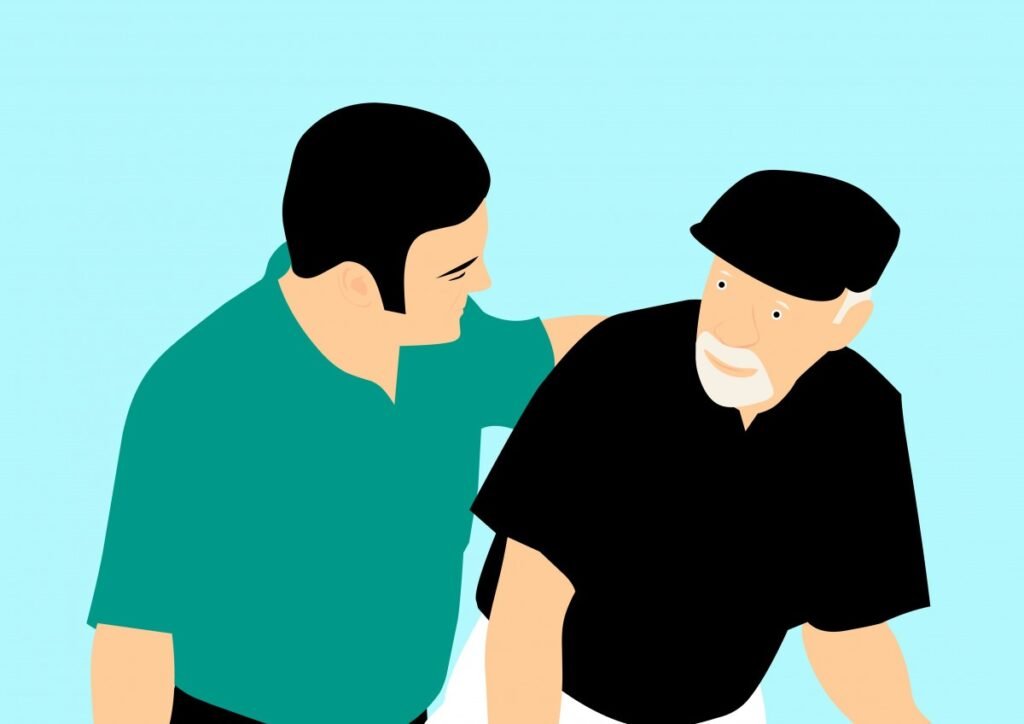

11. Decline in Overall Health
A decline in an individual’s emotional, physical, and cognitive health can suggest the need for care services. Individuals may become more prone to anxiety, depression, or stress which can be effectively managed in assisted living.
12. Changes in Nutrition and Eating Habits
A noticeable change in eating habits, such as skipping meals, lack of appetite, or difficulty in preparing balanced meals, can be a sign that an individual is struggling with the daily task of nutrition. This can lead to health issues like malnutrition or unmanaged dietary conditions.
13. Difficulty Managing Finances
If an individual is having trouble managing their finances, such as forgetting to pay bills, difficulty in handling money, or making unusual purchases, it could be a sign that they need assistance. This could stem from cognitive decline or physical limitations that make managing finances challenging.
14. Decreased Mobility or Frequent Falls
Experiencing difficulty in moving around, frequent stumbling, or falls can suggest that an individual’s mobility is compromised. This increases the risk of injuries and indicates a need for a safer living environment with assistance readily available.


15. Emotional and Behavioral Changes
Significant changes in mood or behavior, like increased irritability, sadness, or withdrawal from previously enjoyed activities, can be indicative of emotional health challenges. Such changes might suggest the need for a supportive and engaging environment like that offered in assisted living facilities.
16. Frequent Confusion or Disorientation
If an individual often appears confused, disoriented or has trouble understanding familiar environments or situations, it could be a sign of cognitive decline. This can make independent living risky and indicate a need for a more supportive environment.
17. Neglecting Household Maintenance
Signs of neglect in home maintenance, like unclean living conditions, clutter, or failure to make necessary repairs, can suggest that the individual is struggling with the upkeep of their home, pointing towards the need for an environment where such tasks are managed.


18. Unexplained Bruises or Injuries
Finding bruises or injuries that the individual cannot explain or remember how they occurred can be a sign of falls or accidents happening more frequently. This can indicate declining physical abilities or awareness.
19. Loss of Interest in Social Activities
If someone who was once social and outgoing starts to lose interest in socializing or participating in community activities, it might be a sign of depression or other emotional health issues. Assisted living can provide social engagement and activities to help combat isolation.
20. Difficulty with Transportation
Challenges in driving or using public transport, such as getting lost, minor accidents, or reluctance to leave the house due to transportation issues, can limit the individual’s ability to manage their daily activities and indicate the need for a living arrangement with more support.
Why Consider Assisted Living?
Assisted living can have various benefits for the patients as well as for the families. Assisted living can effectively improve the quality of life of individuals and help them through their tough stages of life with the utmost care and support.
Safety
Assisted living focuses on maintaining the safety and security of residents. With a trained and professional staff and a secure environment, assisted living ensures the development of a sense of security in their residents.
Healthcare Support
Assistance to healthcare support and consultation with healthcare professionals is readily accessible in assisted living. For individuals who require medical attention and care, they can benefit from assisted living.


Relief for Families
Families and caregivers may feel stressed or frustrated from providing constant care services to their loved ones. Caregiver burnout can be avoided by reaching out to assisted living care services and providing your loved ones with the professional support they need.
Maintaincence-Free Living
The care team aims to improve the quality of life of individuals by providing services including house maintenance. Individuals in assisted living are allowed to live in comfort while the significant tasks are taken care of by a professional care team.
Specialized Care Services
Assisted living provides specialized care services that address the special needs of each individual. For instance, patients with dementia or Alzheimer’s can receive care services in assisted living that address their needs and assist patients according to their health conditions.
Social Engagement
Assisted living focuses on providing a healthy and comfortable environment to the patients to contribute to their overall health. With a group setting and a compassionate staff, patients are given opportunities to interact with the people around them and maintain an active social life.
Are Families Involved in Decision-Making?
Yes, families play a crucial role in deciding the process of caregiving in assisted living.
Information Gathering
Families can contribute to the decision-making process significantly by gathering information regarding different assisted living facilities. They can ensure the cleanliness and comfortability of the care center to ensure the well-being of their loved ones.
Discussion and Planning
Another important aspect is to carefully discuss and plan individual preferences and wishes. It is crucial to have an environment with open communication for individuals to raise their concerns regarding the care facility.
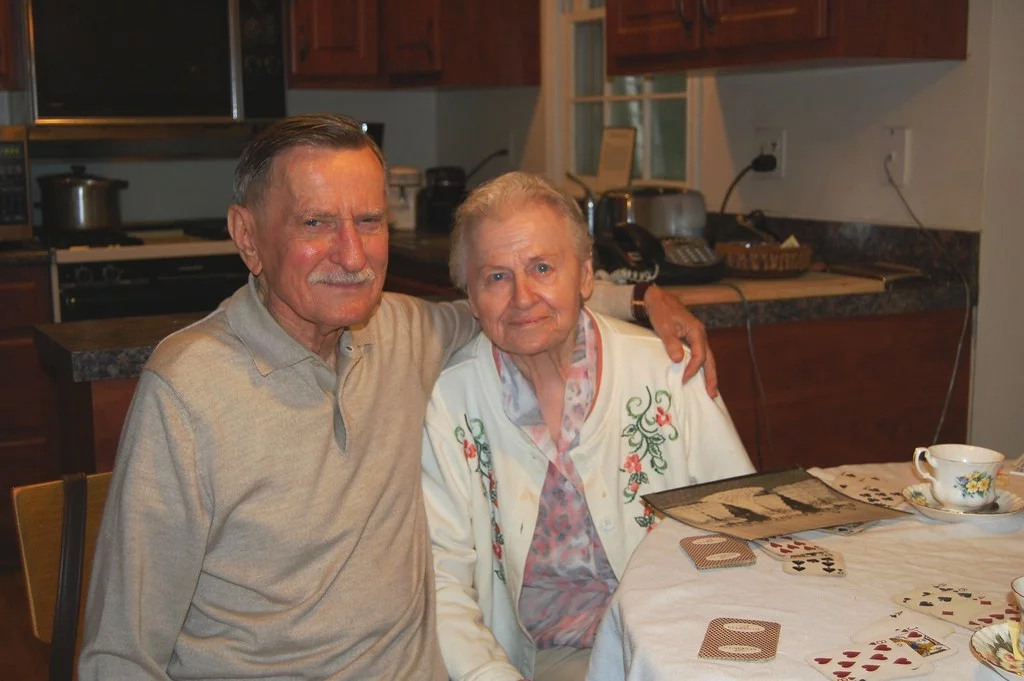

Assessment and Evaluation
Families can work together to evaluate the current condition of their loved one to choose care services that suit the individual the best. It is vital to thoroughly evaluate the current living condition of the individual and the level of care needed.
Financial Consideration
Families can also play a significant part in assisted living by carefully considering the financial aspect. It is important to choose a care center that addresses the needs of the individuals and is also affordable.
Smooth Transition
The process of moving to assisted living can be made easier by ensuring a smooth transition. In the moving process, families can help their loved ones settle and personalize their living space to promote a sense of belonging.
Moreover, families can arrange frequent visits and continue to be involved in the care process.
What is the Financial Cost of Assisted Living?
The financial cost of assisted living is based on several other factors. One factor could be the type of facility and the services provided. Based on different amenities and services the cost structure of one assisted living can significantly vary from another.
Moreover, the location of an assisted living facility can also play a major role in determining the cost structure of the facility. Urban areas or regions with high cost of living are likely to have expensive care services.
Another important aspect to consider is the level of care needed. While some patients may require assistance with daily life activities such as eating or bathing, some may require complex levels of care such as patients with dementia or Alzheimer’s.
However, it is important to note that long-term care such as assisted living is not covered by Medicare.


How to Ensure a Smooth Transition to Assisted Living?
Transitioning to assisted living can be a significant change in one’s life. With a few steps, the transition can be made easier and smoother.
Early Communication
It is essential to engage in early communication to help individuals adjust to the change gradually. Make sure to consider the concerns of individuals and involve them in the decision-making process.
Familiarize and Visit
Before moving to the facility, make sure to visit the care center with the individual. Help them familiarize themselves with the environment to make the transition process easier.
Engage in Activities
Encourage individual participation in community activities arranged by the assisted living facility. Social engagement can contribute to the emotional well-being of the individual as well, reducing negative feelings of isolation and social withdrawal.
Personalize the Space
Help individuals personalize the living space with photographs or belongings close to them. This can help promote a sense of comfort and familiarity, making the new environment feel like home to these individuals.
Stay Involved
Families should stay involved in the transition process. Attend discussions and meetings regarding the care plan of your loved ones and make sure to pay regular visits. Maintain regular communication with the care facility to ensure the individual needs are being met.
Encourage Independence
Encourage independence in individuals by helping them engage in activities. Make sure to consider the physical or cognitive limitations of individuals and make the activities easy for them to carry out.
Be Patient and Understanding
Understand that the adjustment process can be emotionally frustrating and distressing for the individual. Stay patient and offer emotional support to patients during this tough phase of their lives to help them navigate through it more efficiently.
Conclusion
Acknowledging that your loved ones need professional help that you may not be able to provide is a difficult thing to understand. However, it is necessary to understand that the well-being of your loved ones can be efficiently achieved by providing them with the high standard of care and support they deserve.
Recognizing the need for assisted living care is possible only through careful observation and evaluation of the current condition of your loved one. It is crucial to consult with healthcare professionals and ensure that an ideal care plan is provided to help improve the quality of life of individuals.
While assisted living helps in daily life activities, the autonomy of individuals is also kept in focus to promote the overall well-being of the residents.
FAQs
Are pets allowed in assisted living?
Some assisted living facilities allow pets, however, this may vary depending on the species and size of the pet.
How is medication management ensured in assisted living?
Dedicated care staff ensure the proper dosages and consumption of prescribed medicines on time.
Can resident continue to see their doctors while receiving care services from assisted living?
Yes, residents are free to consult their doctors while receiving care services from assisted living.
Is there a restriction on visiting hours for friends and families in assisted living?
The restrictions on visiting hours may vary from one care facility to another. However, assisted living facilities provide flexible visiting hours to families and friends to accommodate them.
Does assisted living consider the cultural and religious aspects of residents?
Yes, assisted living acknowledges the diversity of clients and makes sure to respect and include the cultural and religious aspects in the care plan of the individual.



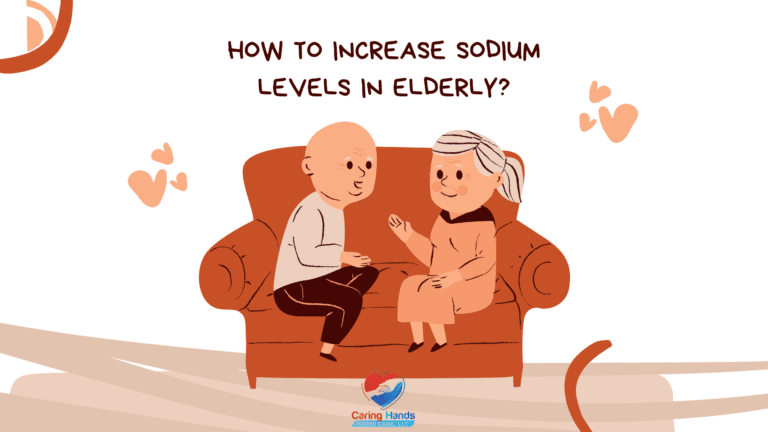
![What Are The Pros & Cons of Assisted Living? [2024 UPDATED]](https://caringhandshomecarefl.com/blog/wp-content/uploads/2024/01/Assisted-living-care-pros-cons-e1704122253120-768x612.jpg)


